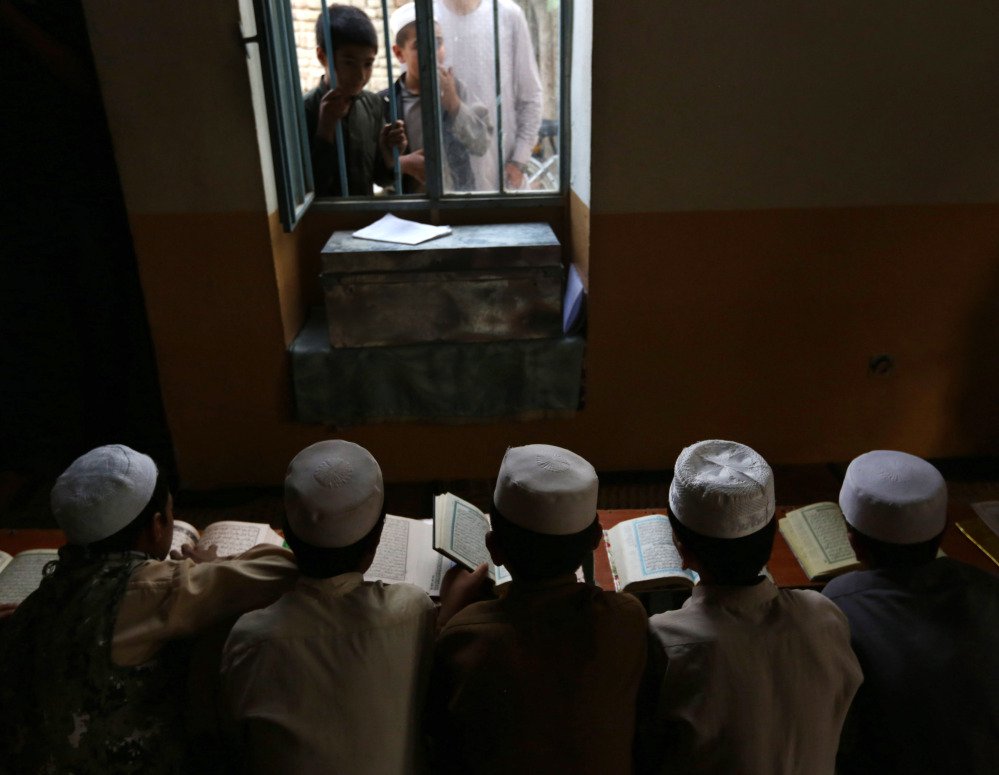As Maine, one of least diverse states in the nation, gets slightly less homogenous, challenges will arise, mostly out of our own heads.
There is, of course, the conflict that comes out of hate and misunderstanding.
But there is also the inadvertent isolation of minorities. It’s hard for even well-meaning members of Maine’s overwhelmingly white majority to put themselves in the shoes of Mainers from different backgrounds and cultures, and as a result people get left out.
As a state, we need to recognize these blind spots. Some schools are already doing so.
This year, three school districts in central Maine, as well as Yarmouth High School, have adopted policies to add holidays from minority religions to the school calendar. At least two other school districts — Lewiston and Cape Elizabeth — have long had similar policies.
Such policies don’t appear to be widespread, however, and last week the Augusta school board rejected the policy. The reasons are revealing.
The proposal failed even though more than 70 community members had come forward in support at a previous meeting, and no one spoke against the proposal during final discussion Nov. 14.
Board members said that Augusta schools are welcoming and tolerant, and that teachers and administrators already take great pains to accommodate students of all religions.
That may be true, but it hasn’t been enough. Parents have said that school trips and other events have been scheduled on Rosh Hashanah, the Jewish New Year, and the first day of Ramadan, a holy month on the Islamic calendar.
The group that has pushed for the policy in central Maine, formed out of Temple Beth El in Augusta, said they simply want those and other holidays listed on the calendar so that schools can avoid conflicts “to the best of their abilities,” as the policy states. The listings would be a reminder to teachers and administrators who don’t observe such holidays as Eid al-Fitr or Yom Kippur, and thus may not know when they fall.
They are not asking for additional days off, or that every event on a holy day be canceled; they are simply asking that non-Christian students be given consideration when possible. They are not seeking special rights, only that non-Christian students be given something close to the same treatment Christian students have always received by default.
An Augusta eighth-garder who spoke in front of the school board — a Buddhist and first-generation American — said her teachers clearly want the best for all students; the calendar listings would be a gentle reminder so that they don’t fall short.
After all, most Mainers have lived their whole lives around a calendar built for Christian holidays. They have never had to consider how the use of that calendar effects Muslims, Buddhists or Sikhs.
The schools that adopt such policies won’t be able to accommodate every holiday. But they will do better.
What’s more, they’ll send a clear message to minority students that they will be heard — that they are worthy of consideration.
That’s not a small thing in a state where white students are least likely to see someone of another race, and where minority students are unlikely to have a minority teacher, even in very diverse school districts.
Unfamiliarity and lack of representation breed misunderstanding — and worse. School calendar policies go the other way — they are a formal statement that every student is worthy of our consideration.
Send questions/comments to the editors.



Success. Please wait for the page to reload. If the page does not reload within 5 seconds, please refresh the page.
Enter your email and password to access comments.
Hi, to comment on stories you must . This profile is in addition to your subscription and website login.
Already have a commenting profile? .
Invalid username/password.
Please check your email to confirm and complete your registration.
Only subscribers are eligible to post comments. Please subscribe or login first for digital access. Here’s why.
Use the form below to reset your password. When you've submitted your account email, we will send an email with a reset code.